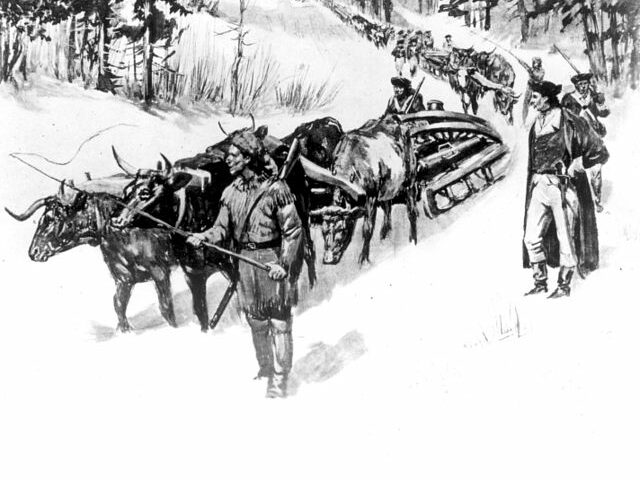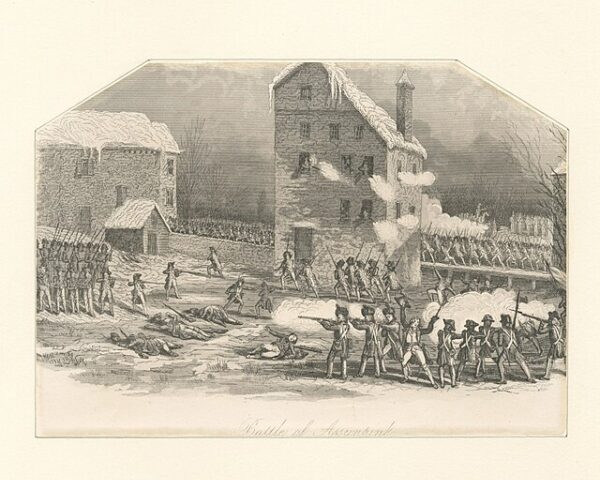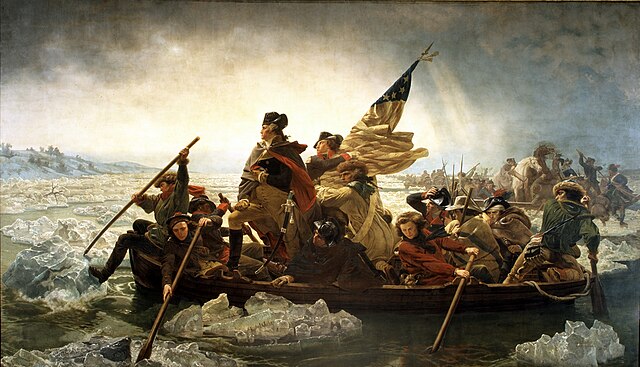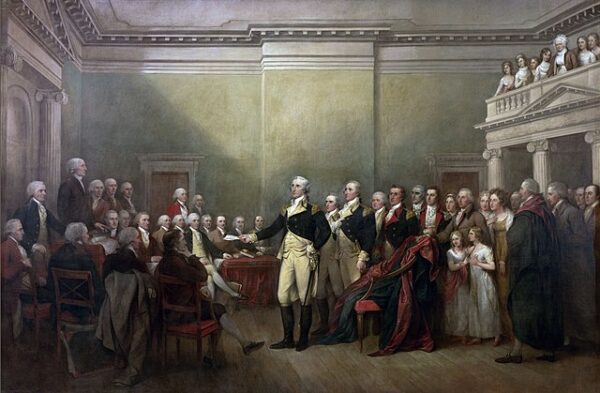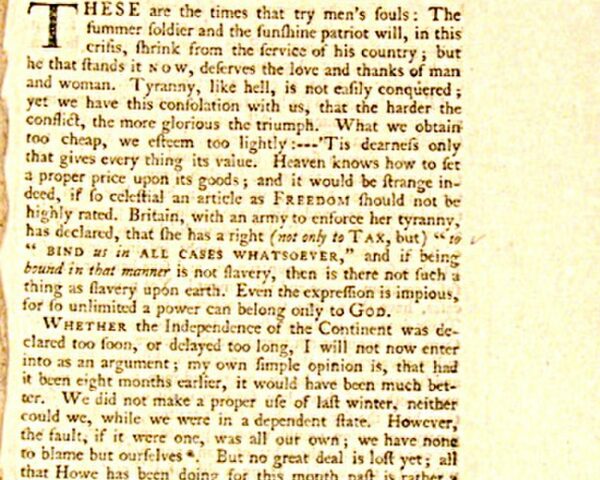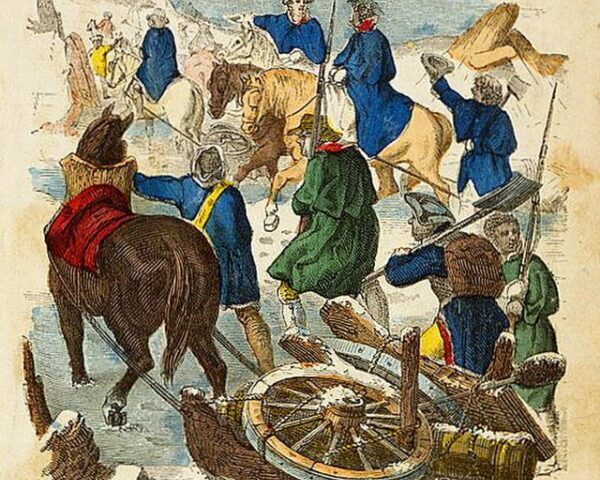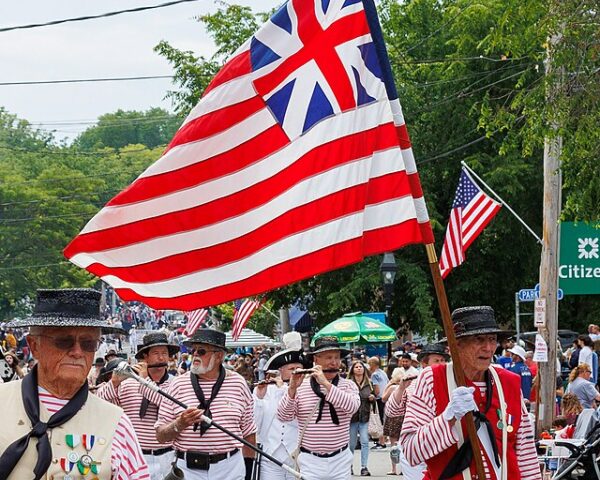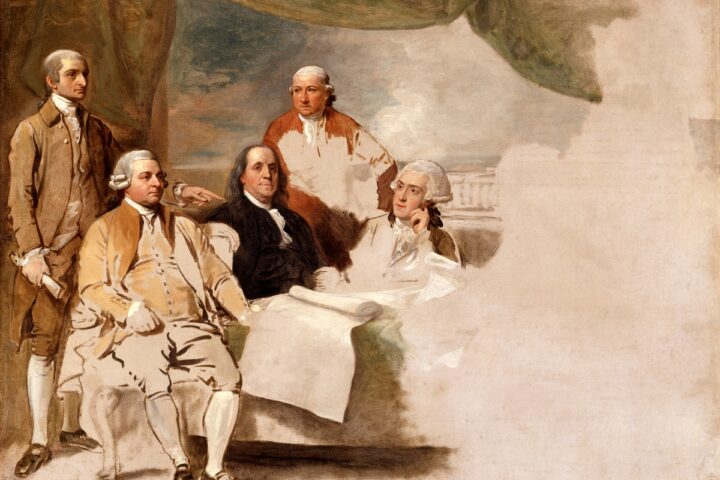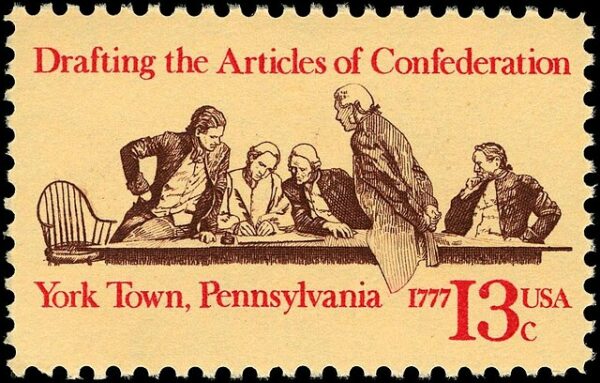On January 27, 1776, an extraordinary achievement of the American Revolutionary War reached its climax. Henry Knox’s “noble train of artillery” arrived in Cambridge, Massachusetts, delivering the heavy weaponry that would become crucial in the fight for independence. This remarkable accomplishment showcased the ingenuity,…
Read MoreOn January 2, 1777, at a narrow stream just south of Trenton, New Jersey, the American Revolution reached one of its most psychologically decisive moments. There, American forces under the command of George Washington successfully repulsed repeated British assaults led by Charles Cornwallis at…
Read MoreProspect Hill in Charlestown, Massachusetts, holds historical significance as the site where the Grand Union Flag was raised on January 1, 1776, symbolizing a crucial turning point in the American Revolution. Often regarded as the first national flag of the United States, it embodied…
Read MoreWashington Crossing the Delaware is an iconic moment in American history that took place during the American Revolutionary War on the night of December 25-26, 1776. Leading the Continental Army, General George Washington orchestrated a daring and strategic crossing of the ice-filled Delaware River…
Read MoreOne day near the end of the Revolutionary War, the King of England and his royal painter, Benjamin West, born in Pennsylvania, were discussing what was happening in America. The King asked West what George Washington would do were America to be declared independent.…
Read MoreOn December 19, 1776, Thomas Paine published the first of his series of pamphlets titled “The American Crisis” in The Pennsylvania Journal. This work marked a pivotal moment in the American Revolution. Beginning with the now-iconic line, “These are the times that try men’s…
Read MoreDuring the winter of 1775-1776, General George Washington faced a dire need for artillery to break the British siege of Boston. That’s when Brigadier General Henry Knox, Washington’s Chief of Artillery, proposed a daring plan to transported “the guns of Ticonderoga” to Beantown, covering…
Read MoreOn December 3, 1775—six months after Lexington and Concord, and amid the halting, improvisational birth of a Continental Navy—the newly commissioned USS Alfred unfurled a banner no American warship had ever carried. It was not yet the “Stars and Stripes,” nor anything immediately recognizable…
Read MoreThe United States became independent on July 4, 1776, but it did not become free from the British until November 30, 1782. The Treaty of Paris, preliminarily signed on that date and sent to both countries for final approval, marked the official end of…
Read MoreThe Articles of Confederation, adopted by the Continental Congress on November 15, 1777, and submitted to the states for ratification two days later on November 17, marked a crucial step in the formation of the United States. As the first framework for a unified…
Read More

